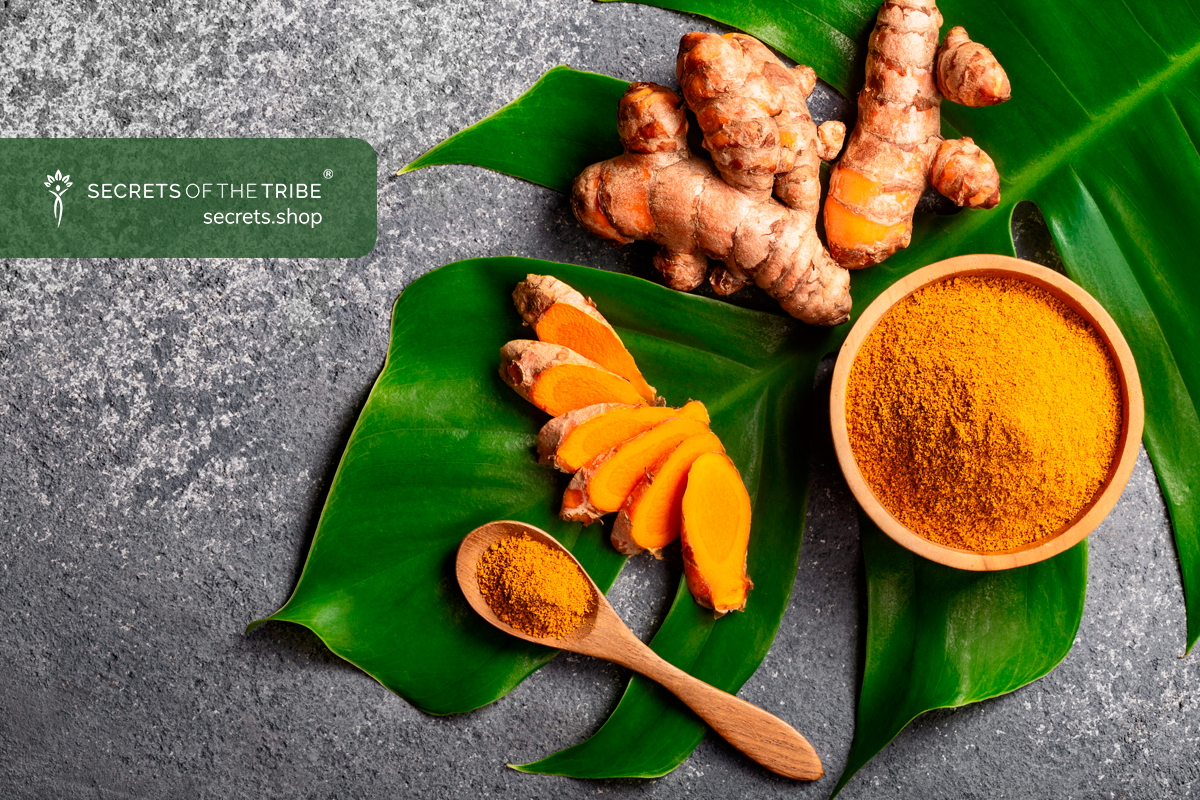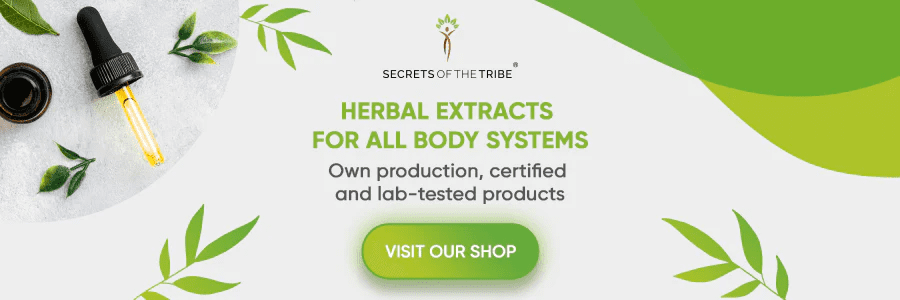Exploring Turmeric and Curcumin: Health Benefits and Uses
In the vibrant world of natural health remedies, few substances shine as brightly as turmeric. This golden spice, long revered in Eastern cultures, has recently captured the attention of health enthusiasts worldwide. More than just a colorful addition to curries, turmeric has emerged as a powerhouse of potential health benefits.
For centuries, turmeric has been a cornerstone of traditional medicine, particularly in India and other parts of Asia. Its journey from ancient remedy to modern superfood is a testament to its enduring value. Today, as scientific research delves deeper into its properties, turmeric is gaining recognition not just as a culinary staple but as a significant player in the realm of natural supplements.
As we explore the world of turmeric, we'll uncover how this ancient spice is making its mark in modern wellness practices, offering a natural approach to supporting overall health and vitality.
What is Turmeric
Turmeric, scientifically known as Curcuma longa, is a flowering plant belonging to the ginger family. Native to the Indian subcontinent and Southeast Asia, it's best known for its vibrant yellow-orange root, which is widely used as a spice, dye, and medicinal herb.
The turmeric plant grows up to about 1 meter tall, featuring long, oblong leaves and funnel-shaped yellow flowers. However, it's the rhizome – the underground stem that we commonly refer to as the root – that holds the plant's true treasure. When harvested and processed, this root is transformed into the familiar golden powder that has become a staple in many kitchens and health stores worldwide.
At the heart of turmeric's potency lies a group of compounds known as curcuminoids, with curcumin being the most abundant and well-studied. Curcumin is responsible for turmeric's characteristic golden color and is believed to be the primary source of its potential health benefits. This powerful compound has been the focus of numerous scientific studies due to its antioxidant and anti-inflammatory properties.
Besides curcumin, turmeric contains essential oils, particularly turmerone, and other nutrients including iron, dietary fiber, and vitamin B6. While curcumin often takes the spotlight, it's the synergy between all these components that contributes to turmeric's overall effects on health.

Traditional Uses of Turmeric
Turmeric's vibrant history spans thousands of years, with its uses deeply rooted in both culinary traditions and ancient healing practices.
In the culinary world, turmeric has long been a staple in many Asian cuisines, particularly in Indian cooking. Its earthy, slightly bitter flavor and brilliant golden hue make it a key ingredient in curry powders and spice blends. Beyond curries, turmeric is used to add color and flavor to rice dishes, soups, and even teas. In recent years, its popularity has spread globally, finding its way into everything from trendy golden lattes to health-conscious smoothies.
The medicinal use of turmeric dates back nearly 4,000 years. In Ayurveda, the traditional medicine system of India, turmeric has been believed to strengthen the overall energy of the body, relieve gas, dispel worms, improve digestion, regulate menstruation, and help dissolve gallstones. In traditional Chinese medicine, turmeric was used to address digestive conditions and more. It has been one of the most valued cleansing herbs.
Many cultures have used turmeric topically as well. It has been applied to the skin to address wounds, skin infections, and inflammatory skin conditions. In some parts of India, a turmeric paste is still applied to the skin of brides before their wedding, believed to impart a healthy glow and ward off harmful bacteria.
Turmeric has also played a role in religious and cultural practices. In Hinduism, the spice is considered sacred and is used in various rituals and ceremonies. Its yellow color, reminiscent of sunlight, has long been associated with the life-giving properties of the sun.
These traditional uses, passed down through generations, have laid the groundwork for modern interest in turmeric's potential health benefits. Today people are even discovering many surprising benefits of turmeric for dogs. As we continue to study this ancient spice, we're discovering scientific evidence that often supports what traditional practitioners have known for centuries.

Top 5 Promising Health Benefits of Turmeric Supplements
As modern research delves deeper into the properties of turmeric, scientists are uncovering evidence that supports many of its traditional uses. While more studies are needed to fully understand turmeric's effects, here are five key potential health benefits that have garnered significant attention in the scientific community:
Anti-Inflammatory Properties
One of the most well-studied benefits of turmeric is its anti-inflammatory potential. Chronic inflammation is associated with numerous health issues, and research suggests that curcumin, the active compound in turmeric, may help combat inflammation at the molecular level. This property could have implications for managing conditions characterized by inflammation.
Antioxidant Effects
Turmeric root is rich in antioxidants, compounds that help protect our cells from damage caused by free radicals. Oxidative stress, caused by an imbalance of free radicals in the body, is linked to aging and various chronic health issues. The antioxidant effects of curcumin may help neutralize free radicals and might even stimulate the action of other antioxidants in the body. For these reasons, many people consider turmeric one of the top herbs for joints turn to turmeric more often.
Digestive Health
Like many herbs for digestion, turmeric has long been used in traditional medicine for digestive issues. Turmeric is thought to stimulate bile production in the liver, which could aid in digestion. This puts turmeric among the best herbs for gut health.
Cognitive Function
Emerging research is exploring turmeric's potential role in supporting brain health. Some studies suggest that curcumin (similar to many herbs for mental clarity) may help support cognitive function and memory, particularly in older adults. While this area of research is still developing, it's an exciting frontier in understanding turmeric's benefits.
Forms and Consumption of Turmeric Extracts
Turmeric's growing popularity has led to a variety of dietary supplement forms, each offering unique benefits. While the spice can be incorporated into your diet, supplements often provide a more concentrated dose of curcumin, the primary active compound in turmeric. Here's an overview of common forms of taking turmeric and how to maximize absorption:
Turmeric Supplement Forms
- Capsules: A convenient and popular option that offers precise dosing.
- Tinctures: Liquid extracts that allow for flexible dosing and quick absorption.
- Powders: Versatile for adding to foods and beverages.
- Teas: A gentle way to incorporate turmeric into your routine.
While all forms have their merits, turmeric tinctures and turmeric capsules stand out as particularly effective options for those seeking the benefits of turmeric supplements:
Turmeric Tinctures: Tinctures offer rapid absorption as the liquid form allows for quick uptake through the digestive tract. They provide flexibility in dosing and can be easily incorporated into beverages or taken directly.
Turmeric Capsules: Capsules provide a convenient option with precise dosing. They're ideal for those who prefer a no-fuss approach to supplementation.

Enhancing Absorption
A key consideration with turmeric supplements is bioavailability - how well your body can absorb and use the curcumin. Curcumin, on its own, is poorly absorbed in the bloodstream. However, there are ways to enhance its absorption:
- Black Pepper: Piperine, a compound in black pepper, can significantly increase curcumin absorption. Many high-quality turmeric supplements include black pepper extract for this reason.
- Healthy Fats: Curcumin is fat-soluble, meaning it's better absorbed when taken with fats. Consider taking your curcumin supplement with a meal containing healthy fats.
- Heat: Heating turmeric may increase its solubility, potentially enhancing absorption.
It's worth noting that many tinctures and capsules are formulated with these factors in mind, often including black pepper extract or using delivery systems that enhance curcumin absorption. This makes them particularly effective forms of turmeric supplementation.
Always follow the dosage instructions on the product label, and consult with a healthcare professional before starting any new supplement regimen, especially if you have existing health conditions or are taking medications.

Turmeric: A Golden Addition to Modern Wellness
Turmeric is far more than just a colorful spice in your kitchen cabinet. Its journey from ancient remedy to modern supplement exemplifies the enduring value of natural, time-tested ingredients in our quest for better health.
As a supplement, turmeric offers a natural approach to supporting overall health. Its primary active compound, curcumin, along with other beneficial components, provides a multifaceted tool for those looking to enhance their wellbeing through plant-based means.
However, it's crucial to remember that while turmeric shows promise in many areas of health, it's not a panacea. It's best viewed as part of a balanced, healthy lifestyle that includes a varied diet, regular exercise, and proper medical care.
Whether you choose to increase your turmeric intake through diet or supplements – particularly in the form of well-formulated tinctures or capsules – you're tapping into a rich tradition of natural wellness.
In our modern world, where we're constantly seeking new ways to support our health, it's reassuring to know that, sometimes, powerful tools for wellness have been hiding in plain sight for centuries. Turmeric, with its long history and growing body of scientific support, stands as a shining example of nature's potential in our ongoing journey toward better health.
Secrets of the Tribe is a family owned and operated US business delivering natural herbal health solutions. Our goal is to support your health naturally. Come join our family!
FAQ about Turmeric
Where can I buy turmeric?
Turmeric can be purchased from various sources:
- Secrets of the Tribe: We offer high-quality turmeric supplements in various forms, including our recommended tinctures.
- HerbEra: They provide a wide range of turmeric products, from powders to capsules, all produced in-house for superior quality.
- Local health food stores or grocery stores: Often carry both fresh turmeric root and dried powder.
- Online retailers like Amazon: Offer a variety of turmeric supplements and raw forms.
- Specialty spice shops: Great for culinary-grade turmeric powder.
Always choose high-quality, organic turmeric when possible, especially for supplement use.
Is turmeric good for a sore throat?
Yes, turmeric may help with a sore throat due to its anti-inflammatory and antimicrobial properties. Many people find relief by:
- Gargling with warm water mixed with turmeric and salt
- Drinking turmeric tea with honey and lemon
- Taking turmeric supplements
However, while turmeric can be beneficial, it's always best to consult with a healthcare professional for persistent or severe sore throats.
What is the best way to take turmeric?
The best way to take turmeric depends on your specific needs and preferences:
- Tinctures: Offer high absorption and are easy to dose. We recommend this form for maximum benefits.
- With black pepper or fats: Curcumin, the active compound in turmeric, is better absorbed when combined with black pepper (piperine) or healthy fats.
- Supplements: Capsules or tablets offer a convenient option.
- In food: Adding turmeric to meals, especially those with healthy fats, can be beneficial and delicious.
- Golden milk: A traditional drink made with turmeric, milk, and other spices.





Share:
Mullein for Ear Infection and More: A Safe and Natural Remedy
Skullcap (Scutellaria Lateriflora): Uses, Benefits, and Side Effects